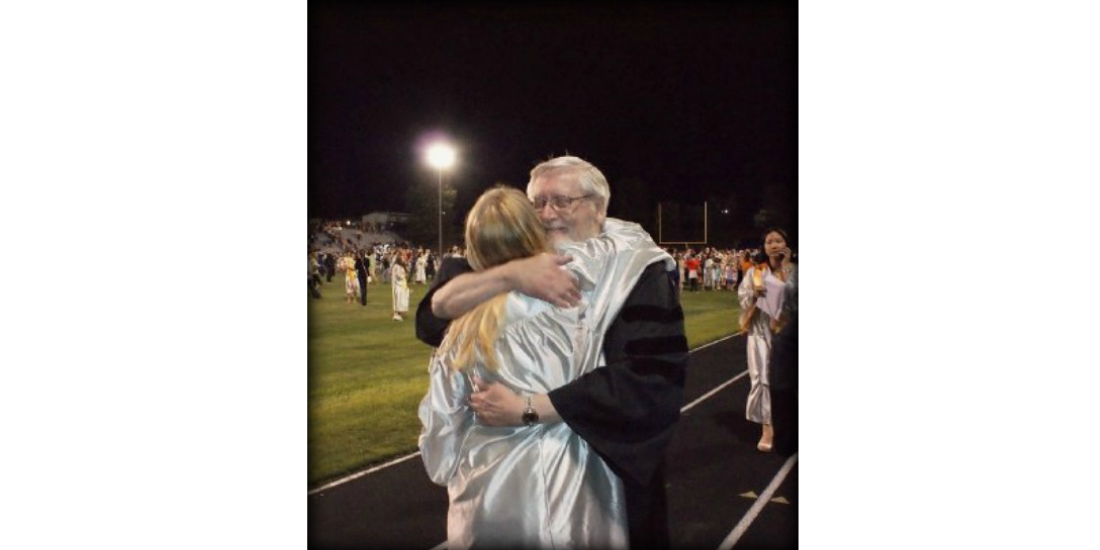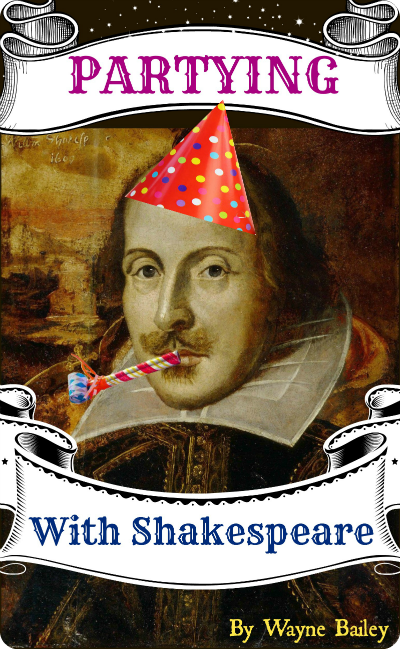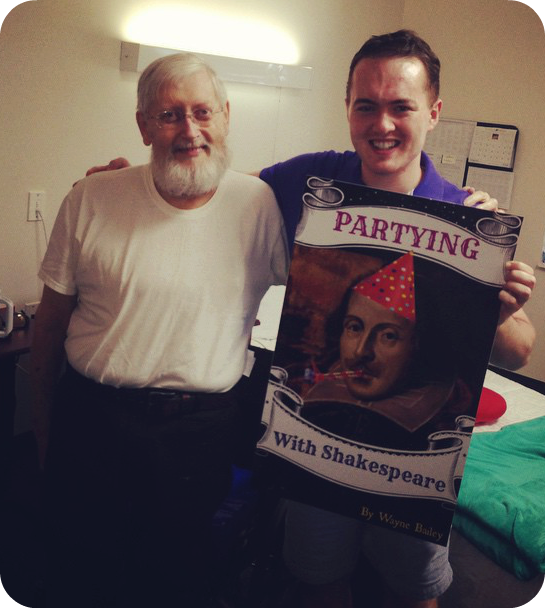Wayne Bailey passed away December 17, 2014.
“I have borne a charm’d life with you,” the Bard said. “Your counsel hath guided my every footstep; driven me to dare and gamble and seize the day; taught me temperance and delivered me wisdom where too often I had none. But why not tarry longer? Why go thither; why go now?“
The pair stood in the grand old Globe, the ground about the stage still littered after a particularly raucous show of “Much Adoe.” One man, the Bard, furrowed his brow in worry. The other, the traveler Wayne (once a barrister by trade, but always a teacher at heart) smiled serenely, one hand resting on the device that would whisk him away to parts unknown.
Over the years, Wayne had skipped in and out of the Bard’s life often, a friend and mentor who always seemed to emerge at the right place and time. It was Wayne who had first suggested, with a twinkle in his eye, that the Bard try his hand at plays. It was Wayne who had laid the Globe’s cornerstone into place. It was even Wayne who had stayed up long nights with the Bard, splitting tankards and rewriting and reciting the sonnets of Othello and Puck and Macbeth until they sang. And now he was leaving.
Wayne grinned, repeating familiar words.
“All the world’s a stage, Will,
And all the men and women merely players:
They have their exits and their entrances;
And one man in his time plays many parts.
I’ve played more parts than most, and wonderful parts in all. But even the best parties draw a curtain call. It’s time to go.”
Shakespeare opened his mouth to speak – and closed it again. The words had already been said, often and over many years, at times high and low. The men embraced a final time and Wayne gently tapped the device, bound for whatever adventure that lay ahead next.
Mr. Bailey told me his zany idea for a time-travel book once. He never exactly condoned my title idea, but I did photoshop it onto a giant piece of cardboard and give it to him, so he may well be stuck with it. I fully intend for him to write it, but I’ve included a small excerpt to get things started.
You can have all the smarts and drive and raw and righteous anger in the world, but these things are worthless without a mentor to tell you what’s right and what’s worthless; to tear down your ego and make you work harder; to challenge your preconceptions and make you consider the facts for what they are. A person without a mentor is lost.
Mr. Bailey did all these things for me and so many others. Through numerous honors societies and academic competitions; through three English classes; through Hawthorne and Shakespeare and even the damn Invisible Man, he helped me find myself.
The going wasn’t always easy: I gave him a teeth-gnashing argument over paper grades nearly every week. Our politics were venomously opposed. Once, I got him to drive 200 miles down to south Georgia to support me in the final round of a writing competition, only to come in last place when I stapled my paper the wrong way ’round.
But he calmly countered the arguments; he weathered the venom; he made me brush off the loss. In time, I learned the merits of objectivity and moderation and quiet persistence. I matured.
And then I went off to college and Facebook became a thing and he became “Wayne,” although “Mr. B.” will always sound better. When we got together, we swapped stories a bit less PC and classroom-appropriate. We talked and had fun. He grew to be – still is, and will always be – a friend.
All across Habersham County and Georgia and the nation and maybe one day beyond that, there are folks with stories like mine. The real measure of “legacy” isn’t how much money you make or how many titles you receive. It’s how many lives you change, and how deeply you change them. By that measure, Wayne Bailey leaves the deepest legacy I know.
We love you, Mr. B. Thank you for what you’ve given us.






Leave A Comment